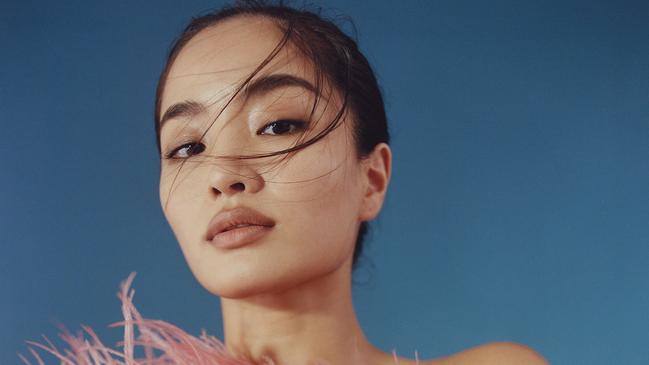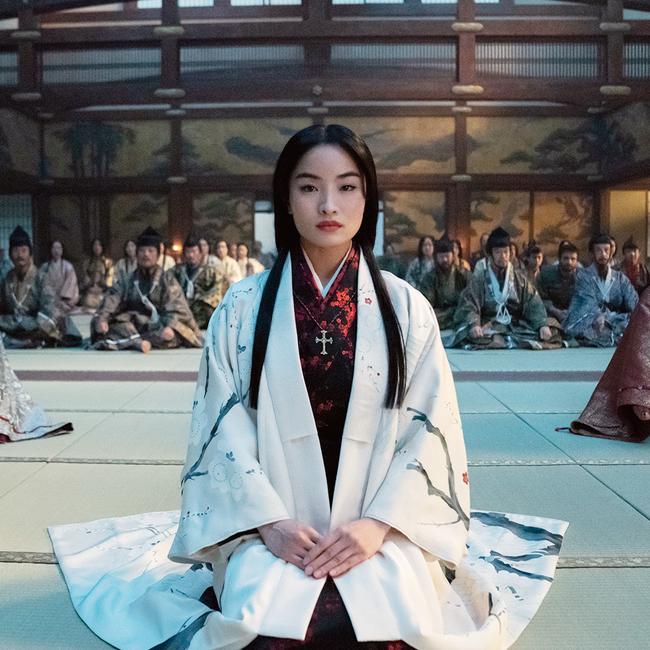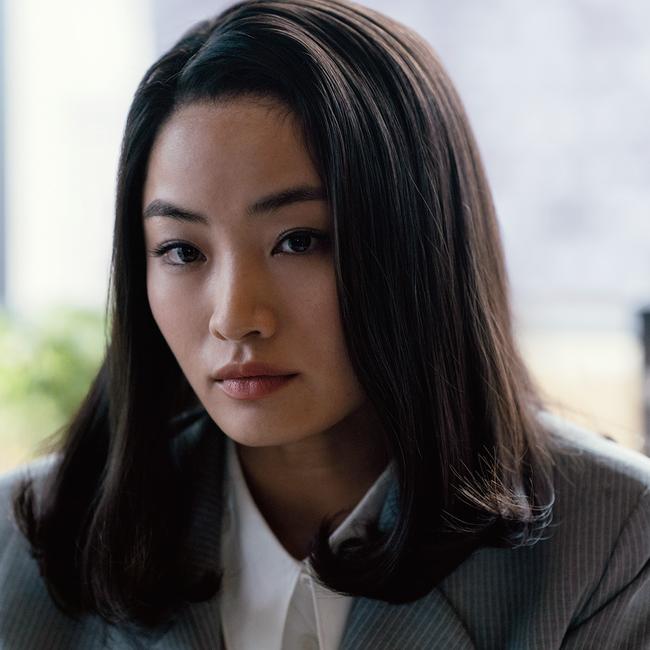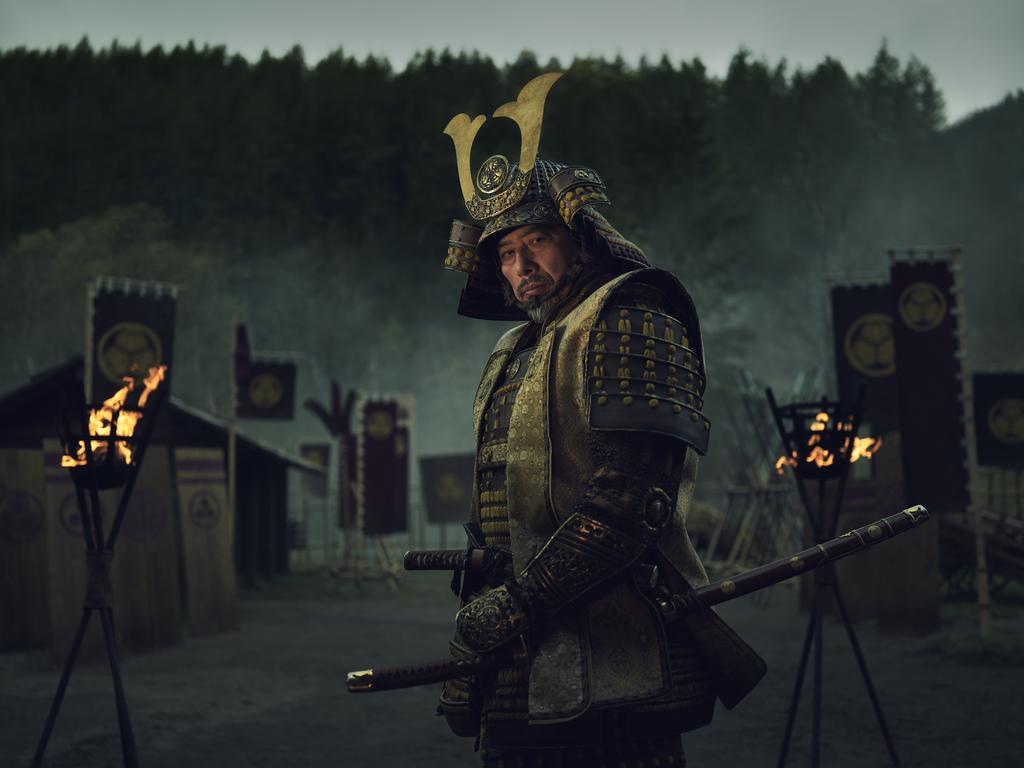Anna Sawai: Television’s leading lady is plotting her next move
In career-making run of work on television series such as Pachinko and Shōgun, Anna Sawai has proven to be the most exciting actor on television right now.

Anna Sawai has a good memory. “Have I spoken to you before?” she asks, peering inquisitively at her computer screen. She has; the year was 2021, and Sawai was
about to premiere her first movie, the latest instalment in a quiet and understated little film franchise called The Fast and the Furious. Sawai, who was born in New Zealand to Japanese parents and was raised in Tokyo, had just made the jump from the world of J-pop, where she spent her early 20s as a member of a popular girl group, to acting.
“I was so green,” she says, with a faraway smile steeped in nostalgia. “I didn’t know what an interview was and I didn’t know what I was doing.”
So much has changed. Sawai still lives in Tokyo, but only in the sense that her stuff is there; the 32-year-old’s career-making run of work on television series, including the acclaimed AppleTV+ adaptation of Pachinko and the blockbuster period drama Shōgun, has beamed her into every corner of the world.

Sawai, who is both serene and sweetly sincere, has just returned to Japan after weeks on the road. First in Los Angeles, for television awards season events, at which she appeared alongside small-screen heavyweights such as Nicole Kidman and Jennifer Aniston, and then to Vienna, where she was a guest at Cartier’s high jewellery festivities. Now that global attention is on Sawai – Shōgun pulled in more viewers on Disney+ than The Bear, and Pachinko’s second season, streaming this month, is one of AppleTV+’s most anticipated shows – she relishes her rare downtime. Yesterday, she spent a whole afternoon shopping with her mother. “Nothing fancy, but it’s those little moments that I really appreciate because when I’m working, I’m away from them,” she explains. “All I have is FaceTime.”
In just a few years, Sawai has proven herself to be one of our most exciting actors, the kind of performer whose innate poise radiates commanding, can’t-look-away intensity. As Shōgun’s Lady Mariko, a translator in feudal Japan bridging myriad cultural divides, Sawai’s regal, tightly wound restraint was flecked with lightning flashes of submerged emotion. (Her performance is tipped not only for an Emmy nomination, but a win, which would make her the first Asian woman to take the category in 76 years.) In Pachinko she plays Naomi, a Japanese financier burnished with ambition. An original character dreamed up for the series, Naomi’s professional rivalry with Solomon (Jin Ha) is muddled by their shared position as outsiders in this brave new world of 1980s Tokyo: Solomon, because of his Korean background, and Naomi because she is a woman. “These are two characters who are marginalised and who don’t fit in,” Sawai begins, “but the way they navigate their position in business, and the choices that they make, could not be more different.”
Because Naomi does not appear in the bestselling novel by Min Jin Lee, Sawai had no road map for season two. To return to the character and her physicality – buttoned into double-breasted Working Girl suiting with pristine bobbed hair – Sawai listened to the cover of ‘In Between Days’ that soundtracks one of her key sequences in season one.
Over eight new episodes, Naomi moves into the corner office and spends time with Solomon outside of work. Episode four, a standout of the season, offered Sawai the chance to share a scene with Youn Yuh-jung (of Minari fame), who headlines Pachinko as Sunja, Solomon’s grandmother. It was the first time Sawai had appeared alongside the Oscar-winning acting legend. “She really brings this organic connection,” Sawai remembers.
“I was nervous talking to her because of the amazing actress that she is, but I feel like Naomi was also very nervous in her presence, meeting Solomon’s grandmother for the first time … I think our relationship helped bring that to life.”
In that scene, Sunja and Naomi prepare a traditional Korean dish of stir-fried zucchini: hobak bokkeum. “Naomi’s supposed to be cutting the zucchini kind of like she can’t cook, and I don’t cook a lot, but I’m pretty good at chopping vegetables,” Sawai laughs. The central thesis of Pachinko – the threads that can simultaneously bind and unite a family – was laid bare in that kitchen.

“This whole show is about what you’re sharing and giving to the next generation, and how that affects you, and how you take it and make your own choices,” Sawai muses. “We get to glimpse Naomi showing appreciation for a culture that she doesn’t really understand … She, despite all of that, is very open to Koreans and to different values.”
Pachinko, which employs a predominantly Asian cast and heroes subtitled dialogue, is a landmark achievement in the ongoing battle for greater representation. It has not always been thus.
“Why am I always taping for these kinds of characters?” Sawai recalls thinking at the beginning of her career. “I’ve always played these very, very Asian roles, because it is limited because of how I am.”
It wasn’t until she started doing interviews for Shōgun that Sawai realised how much audiences are still deprived of characters who look like them.
“I would have these conversations with Asian women telling me how much it meant to see a character like Mariko.”
In our first interview back in 2021, Sawai mused that Pachinko and the character of Naomi was “a good reminder of … how the women before us paved the way for us”. Today, she feels this even more keenly. “I understand more about my ancestors. I understand more about our history,” she says. “It’s all connected, and I really feel like I appreciate my roots so much more.”
Sawai is in the tantalising position for an actor of being “selective” about what comes next, after years concerned she was “not in control” of her career. “I’m trying to read a lot of scripts. I don’t know what it is gonna be yet.”
She’s also watching everything she can: she raves about Challengers and All of Us Strangers, the devastating Andrew Scott drama based on the Japanese novel by Taichi Yamada. “I had felt very lonely last year at a certain point in my life and I remember waking up feeling like, oh my god, I’m never going to be able to see my parents again … When you think about it, it’s a couple of hours of flights, it’s fine,” she laughs. “But I felt so isolated … I want to do something like that, where people can really relate to it.” She is seeking out a project with a similar emotional pull. “Something that feels true to me,” she sums up. “Mariko, I carried her for a really long time, and whenever I talk about her, I still sometimes tear up. I want it to have that effect on me, because I know that’s going to have an effect on the people watching.”
Season two of Pachinko streams on AppleTV+ from August 23.
This article appears in the August issue of Vogue Australia, on sale now.




To join the conversation, please log in. Don't have an account? Register
Join the conversation, you are commenting as Logout